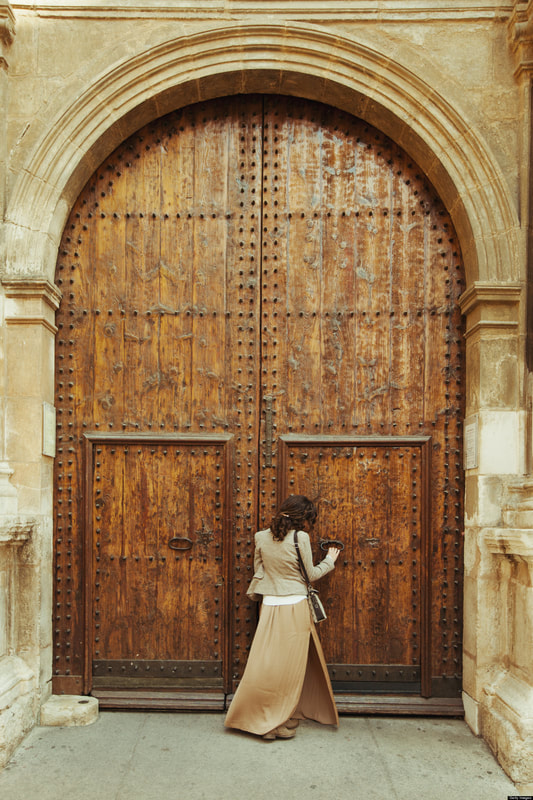It’s not my taste but work away, it’s a free country. (Maybe you’d like to borrow my headphones?)
Most of us these days like to ‘live and let live’ concerning the choices of others. But some subjects are not so easily dismissed, in fact they’re genuinely anguishing.
A fellow Presbyterian expressed dismay to me on Sunday after last week’s General Assembly of the Presbyterian Church in Ireland. For while our new Moderator had begun proceedings with a warm address about ‘building relationships’, the ensuing discussions included a couple of rulings which have come across as cold and unwelcoming.
We are hospitable folk! In our place, every service begins with handshakes, high-fives, smiles and words of welcome all around. But we have a dilemma, for while we love to welcome people, we cannot welcome sin. Everyone is welcome to come to church and hear the good news of Jesus, but as with all organisations, if someone wishes to become a full member and take part in the sacraments some ‘terms and conditions apply’.
Like other institutions, churches are under pressure nowadays to change standards to reflect changes in society, and tension arises between those who do and those who don’t. It’s like a family rift. How do we express deep differences yet remain united?
As a troubled friend once shared with me, ‘I know something my brother is doing is wrong, but I still love him. He’s still my brother!’
When wrestling with moral issues, Christians seek guidance from the inspirational teachings and example of Jesus Christ. Everything we are and do flows from trusting and following Him.
Misunderstanding occurs however when people share snatches and snippets of what someone thinks Jesus might have said. The resulting picture is often incomplete and blurred. Accurate balance from the Gospels is vital.
Jesus of Nazareth combined the warmest of welcomes with the most uncompromising stance on right and wrong. He famously fed, healed and delivered crowds of people, yet taught that our ‘righteousness’ should ‘exceed that of the Pharisees’ if we want to see God’s kingdom. We should not overlook that His regular theme in preaching was, ‘Repent (ie ‘Turn from doing wrong’) and believe the good news!’ (Mark 1 v 15) As a prophet, He wept over Jerusalem, foreseeing trouble in the future for the choices they were making.
More, He practised what He preached. Single and celibate, it’s worthy of note that none of Jesus’ enemies were women or children. No allegations of harassment or abuse here!
When asked about marriage, Jesus reaffirmed the creation ‘blueprint’ from Genesis 2 of one husband, one wife in lifelong partnership with sex as a sacred wedding gift from our Maker. (Matthew 19 v 4-6) If Jesus is God the eternal Son and co-Creator of humankind as the New Testament eyewitnesses claim, who are we to argue with His design?
Christians as individuals and groups must try to reflect our Lord. So, like Him, we love and welcome people, but clearly condemn and humbly warn against actions which God says are wrong.
A young man once told me he was gay and asked if I thought he would go to Hell. While I could in no way condone some of his life choices, in my heart I felt a surging desire that this young man would know that Jesus liked Him and would help him if he prayed.
Without a doubt some of these conversations and debates can be difficult and painful. Difference can create distance, and none of us like being told we are wrong! But these are the Christ-based principles His Church must employ. The Apostle Paul instructed a congregation in Corinth to temporarily exclude someone who was blatantly disobeying God’s commands, but later instructed them to welcome the person back when he repented and changed his ways.
While some people may find this offensive or offputting, others actually find it reassuring. The 21st century world is a deeply uncertain place. Without absolute standards anything goes, and this paves the way for a chaotic and abusive society.
For people of faith, it’s ultimately comforting to know there is a Creator and therefore a purpose to life. There is a God so there is right and wrong and there will be a time for judgement and reward, therefore the choices we make matter.
Best of all, the Almighty balances holiness with grace, so there is mercy for those who seek it.
What makes the love of God so special is Jesus giving His life that we all might be forgiven for the catalogue of wrongs we have done. While people can find short-term love and acceptance in many places in the world, what makes the Church distinctive is its unique message of salvation and everlasting life as beloved children of God.
Which is assured if and when we turn from wrong and trust in Christ as Saviour.
It has always been the Church’s responsibility to challenge the world about sin, but also our joy to share the solution!

 RSS Feed
RSS Feed